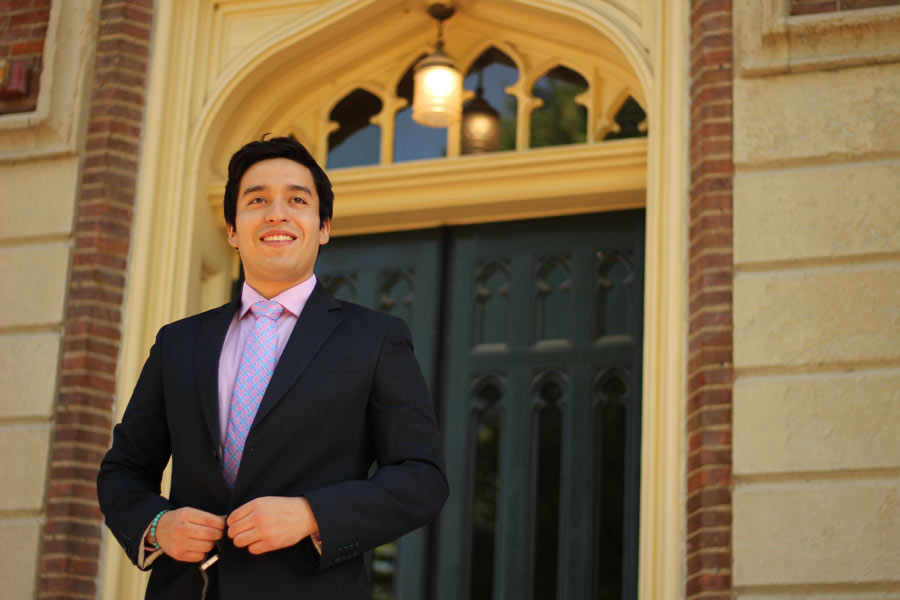


La Paz, Bolivia
Major in Business & Management, Minor in Economics

Tell us about your internship.
I had a summer-long internship with a wonderful nonprofit in Chicago, called the Chicago Literary Hall of Fame. My internship was solely devoted to researching and identifying local, state, and federal grants that would fit the mission of the Chicago Literary Hall of Fame. Once I had identified a handful of grants that I thought were suitable, I wrote an application for that grant, which included writing narratives about the organization, the history of the entity, and why we believed that the organization would be a good fit for the grant.
All in all, my internship was divided into two parts, one where I researched different private and public foundations that would provide operational grants and from there see which ones would fit the mission of The Chicago Literary Hall of Fame the best, and the other half was completing and submitting an application form for that grant.
How did you learn about this internship opportunity?
This internship came about due to two wonderful professors: Liz Carlin Metz [Smith V. Brand Distinguished Chair in Theatre] and John Spittell [Joseph E. & Judith B. Wagner Distinguished Chair in Business and Executive-in-Residence]. The internship was a result of a [2020 spring term] class project in BUS 215, Strategic Principles of Arts Administration, where we were supposed to work with local nonprofits in Galesburg and help them obtain grants.
Due to COVID-19, many of the local nonprofits were temporarily closed. Thankfully, Liz Metz with her outstanding range of connections knew of nonprofits in Chicago. The Chicago Literary Hall of Fame was one of them, and it started from there and it was supposed to last for half of the term. I was given the opportunity to expand it outside the classroom into a summer internship.
What were some highlights of your internship experience?
One of the highlights was being able to talk to key figures within the nonprofit and hear straight from them what this nonprofit meant to them. Being able to hear the passion and drive in every word was something really empowering. I was pleasantly surprised at how open and welcoming everyone was and how willing they were to help with any questions I had, making me feel like I was part of that cause that they worked for.
How do you think your experiences at Knox prepared you for this internship?
John Spittell and Liz Metz were crucial for this internship. Taking both of the arts management classes made this internship far easier as they explained in depth how the nonprofit sector worked, how it was handled from the inside out, and how to interact with people to better understand them, and ultimately better understand the entity, which was crucial when determining what grant would best fit the nonprofit.
Did this internship fit in with your future plans, and if so, how?
This internship helped me in my career after college because I do want to be involved in the nonprofit sector for a small bit of my life. I believe that nonprofits can add a lot of value to communities, and being able to work for a nonprofit has allowed me to have a glimpse of how that sector works.
I strive to create businesses that provide financial opportunities as well as opportunities for people who have not had that, and the nonprofit sector allows for that opportunity to arise. My experience at Knox has equipped me with the tools I need to understand the businesses I interact with, from accounting to economics, to administration, to the advanced art of understanding and listening to people to understand what drives them and what drives their business.